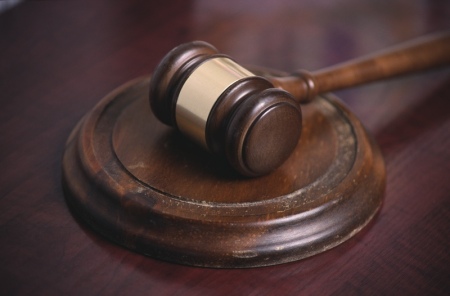Top Two open primary faces first legal challenge

The first lawsuit challenging the legality of California’s newly-approved “top two” open primary system was brought forward last week in San Francisco Superior Court. The suit seeks to block implementation of Proposition 14 on the grounds that it disenfranchises voters and discriminates against minor party candidates.
The top two open primary system was passed into law in June when voters approved Prop 14. The measure was backed by Governor Schwarzenegger and Lt. Governor Abel Maldonado, and opposed by Democratic and Republican party leaders as well as a large coalition of third party groups, including the Green and Libertarian parties. In the end, Prop 14 was supported by 54% of voters, though only 33% of eligible voters cast a ballot in the election, according to the Office of the Secretary of State.
The Top Two Act effectively does away with the traditional party primary. Instead, all candidates for a given office, except that of President, would be listed on the same primary ballot and the top two vote-getters in each primary race, irrespective of party, would go on to compete in the general election.
The lawsuit, however, does not challenge Proposition 14 as such, but rather provisions within Senate Bill 6. SB6 was passed by the state legislature in early 2009 as part of the compromise that resulted in the passage of the state’s budget. SB6 was authored by Lt. Governor Abel Maldonado who cast the decisive vote in the budget impasse. The bill provides the legal scaffolding for the implementation of the top two open primary.
The lawsuit argues that SB6 is unconstitutional because, if implemented, candidates who “identify with a ‘minor’ party will be censored and discriminated against on the ballot,” and because votes cast for any “write-in candidate in the general election will not be counted.” (Full copies of the complaint and brief can be found at Ballot Access News, a site authored by Richard Winger, who is one of the plaintiffs in the suit)
One of the candidate-plaintiffs in the suit, Rodney Martin, objects to SB6 on the grounds that, though he is registered with the Reform Party, his party affiliation would not be listed alongside his name on the ballot because the Reform Party is not ballot qualified. Instead, the words “no party preference” would be printed next to his name.
One of the voter-plaintiffs, on the other hand, objects to the fact that general election votes cast for write-in candidates would simply not be counted. “By not counting write-in votes after allowing voters to cast them, SB6 will trick people into throwing away their votes,” said Jennifer Wozniak, a registered voter in Orange County. Further statements from the plaintiffs can be found at the Independent Political Report.
In a press release, Governor Schwarzenegger vowed to fight the lawsuit, saying the effort is the work of “special interests.” The governor stated:
“It comes as no surprise that Sacramento special interests are trying to overturn the government reforms Californians overwhelmingly support. I will fight these special interests at every turn to protect these reforms that will break through Sacramento’s dysfunction.”
Lt. Gov. Abel Maldonado struck a similar tone in a written statement on the matter, as reported at Mercury News. “This lawsuit is yet another attempt by party bosses trying to continue the manipulation of legislators and deny the people of California their choice to vote for whomever they want,” he said.
Christina Tobin, the Libertarian Party candidate for California Secretary of State and Chair of Stop Top Two, an organization that opposed Proposition 14, responded to the Governor and Lt. Governor, stating, “Maldonado and Schwarzenegger are flat out wrong that this lawsuit is an attempted power grab by party bosses and special interests.”
In my view, it would seem that minor party candidates and voters who cast their ballots for write-in candidates are not in fact the sort of groups one usually thinks of at the mention of the term ‘special interests’. And Maldonado’s assertion that the legal action seeks to deny voters the “choice to vote for whomever they want” certainly does not appear to square with the lawsuit’s objection to the fact that write-in votes would not be counted if SB6 is implemented.
With their statements, however, the Governor and Lt. Governor may actually be preparing the discursive ground for battles against future lawsuits that are all but certain to be brought against the top two system. As reported by The Hill, the California Democratic and Republican Parties are also preparing legal challenges to the new law. “John Burton, chairman of the California Democratic Party, confirmed that discussions about taking legal action were ongoing, as did a spokesman for the state GOP,” according to Barbra Kim. Other parties such as the Greens and Libertarians may also join such an action, or launch their own.
Hearings for the present lawsuit are scheduled to take place within the next month. If an injunction against the law is not issued by the court, its implementation will begin in January of next year.




